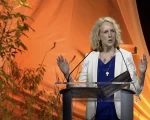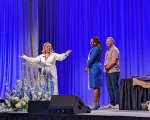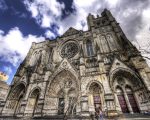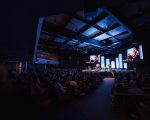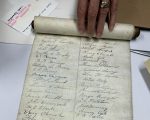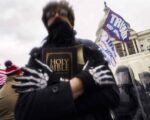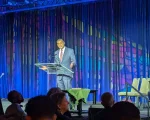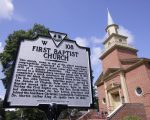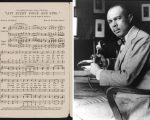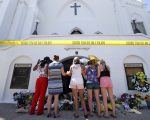United Church of Christ Brings a Still-Speaking God Into the Christian Nationalist Era
This issue of A Public Witness takes you inside the UCC synod to explore the specific issues that were discussed and how they are relevant to all ecumenical Christians in these troubling times.
American Baptists Confront Past and Present Injustices
This issue of A Public Witness treks to the Cornhusker State to consider a lost scroll that gained widespread news coverage and a denominational gathering that didn’t.
New York’s Episcopal Diocese Launches $1M Racial Reparations Fund
‘New York was the center of the slave trade in the United States,’ said the Rt. Rev. Matthew F. Heyd, bishop coadjutor of the Episcopal Diocese of New York. ‘That evil is part of the fabric of the diocese, and we’re trying to repair this fabric.’
Nashville’s Christian Music Stars Join Activists in Push to Save PEPFAR
During a mid-June event at Otter Creek Church, musicians and activists praised PEPFAR for saving millions of lives and urged evangelicals to call their representatives and show their support for the program.
A Volunteer Finds the Holy Grail of Abolitionist-Era Baptist Documents in Massachusetts
The resolution shines a spotlight on a critical moment in the history of the Baptist church, signed two years after the issue of slavery prompted southern Baptists to split from northern Baptists and form the SBC.
How to Challenge MAGA’s Biblical Authoritarianism
This issue of A Public Witness features a guest essay centered on four creative proposals to disrupt Christian Nationalism within a distinctively Christian vernacular.
Cooperative Baptists Remember Historical Injustices, Confront Contemporary Ones
This issue of A Public Witness takes you inside the recent CBF annual gathering to consider how Christians can speak truthfully about the past and speak truth to power today.
Rebuilding One of the Nation’s Oldest Black Churches Begins at Juneteenth Ceremony
The First Baptist Church of Williamsburg officially established itself in 1776, although parishioners met before then in fields and under trees in defiance of laws that prevented African Americans from congregating.
‘Lift Every Voice and Sing,’ the Unofficial Black National Anthem, Celebrates 125 Years
‘It is featured in over 40 different Christian hymnals and sung in churches all across America, not just during Black History Month or Juneteenth,’ said musician Theodore Thorpe III.
10 Years After Charleston Church Massacre, Faith Leaders Lament That the Country Hasn’t Changed
As survivors gathered Tuesday, they invited another congregation that knows the pain of murderous hatred to join them: members of the Tree of Life synagogue.

